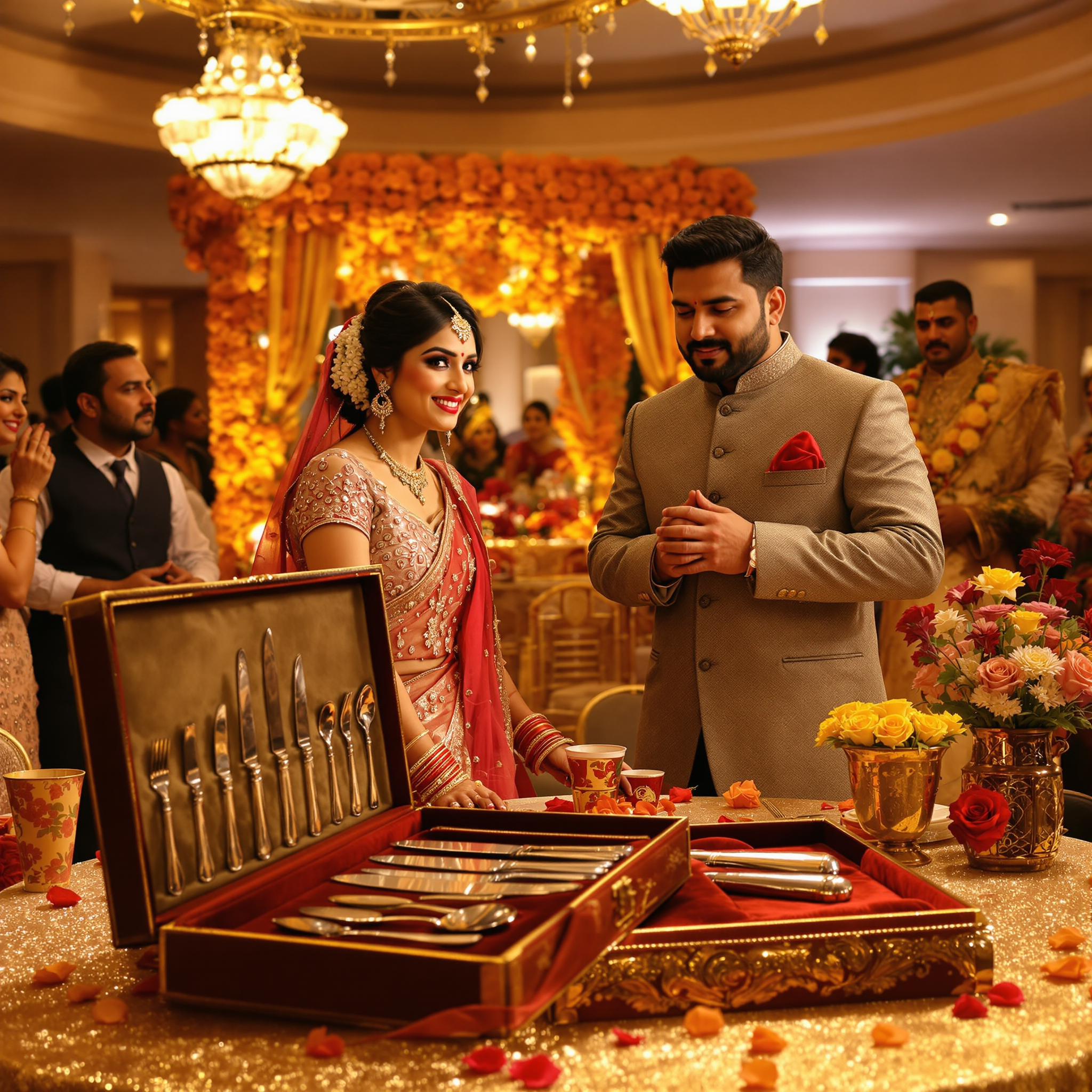In various cultures, gifting knives, scissors, or other sharp objects to a bride and groom is avoided because of their symbolic association with cutting or separation. The fear is that such gifts could metaphorically ‘cut’ the relationship, causing arguments, misunderstandings, or even divorce. If a sharp item must be gifted, some cultures suggest giving a coin along with it so that the item is seen as ‘purchased’ by the couple rather than gifted—neutralizing the negative symbolism. This practice still persists in many Eastern and Western wedding customs. Items commonly avoided include chef’s knives, scissors, letter openers, and even needles in some regions. The superstition is typically honored during wedding showers, engagement celebrations, and the wedding gift exchange.

A baby’s future career or fate is predicted by the first object they select during a ceremonial setup.
In several Asian and Eastern European cultures, a traditional ceremony is held for babies usually around their first birthday. Known


